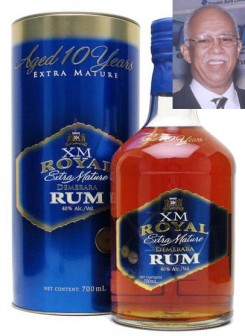Banks DIH Ltd’s Chairman Clifford Reis told shareholders at the 56th Annual General Meeting last week that the company intends to focus on “a concerted export drive.” This, he said, will be centred around the heightened promotion of the company’s well-entrenched XM and Banks Beer brands.
There is, Reis said, “a strong demand and a market waiting to be developed for our rums in Europe and North America,” and with product development of these brands now completed, the company will move aggressively to make further inroads into the international market.

Reis said Banks is pinning hopes for the continuity of its reputation for sustained profitability on its ability to correctly interpret the changes that continue to occur in both the domestic and global economic environment and to make corresponding strategic adjustments to its own operations.
He stressed again that Bank DIH continues to be challenged by “competing brands of beverages and food products,” a circumstance which he said “will be the reality for the foreseeable future.”
Therefore, Banks DIH’s planned response to increased competition will be “to ensure that loyalty and commitment to our brands continue.”
Banks has already set itself a target of a 20 per cent increase in revenue and a 10 per cent increase in profits for the financial year 2011/2012, results which Reis says will be pursued through an increase in physical sales by 12 per cent, the introduction of new products, the increased sales of its light and president beers and an increase in the export volumes of the rums, wines and beer.
The company chairman’s presentation also addressed what he regarded as issues that impacted both positively and negatively on operations and outcomes over the past year. On the positive side, he alluded to the “benefit accrued from the reduction in our corporate taxation and a significant increase in volume sales across the company;” on the negative side he identified, not for the first time, “significant increases in the cost of fuel used for power generation, our transport fleet and utilities for the production plants.” Additionally, Reis said, the company had also had to shoulder additional financial costs associated with “increases for manufacturing items purchased from overseas suppliers,” including “bottles, pre-forms, malted barley and sugar to mention but a few.” More than that Reis told shareholders that there was no indication in the foreseeable future that this trend will change.
According to Reis, the focus of the company in these circumstances will be on a heightened awareness of increasing costs and an enhanced focus on “cost reduction and cost control.”








